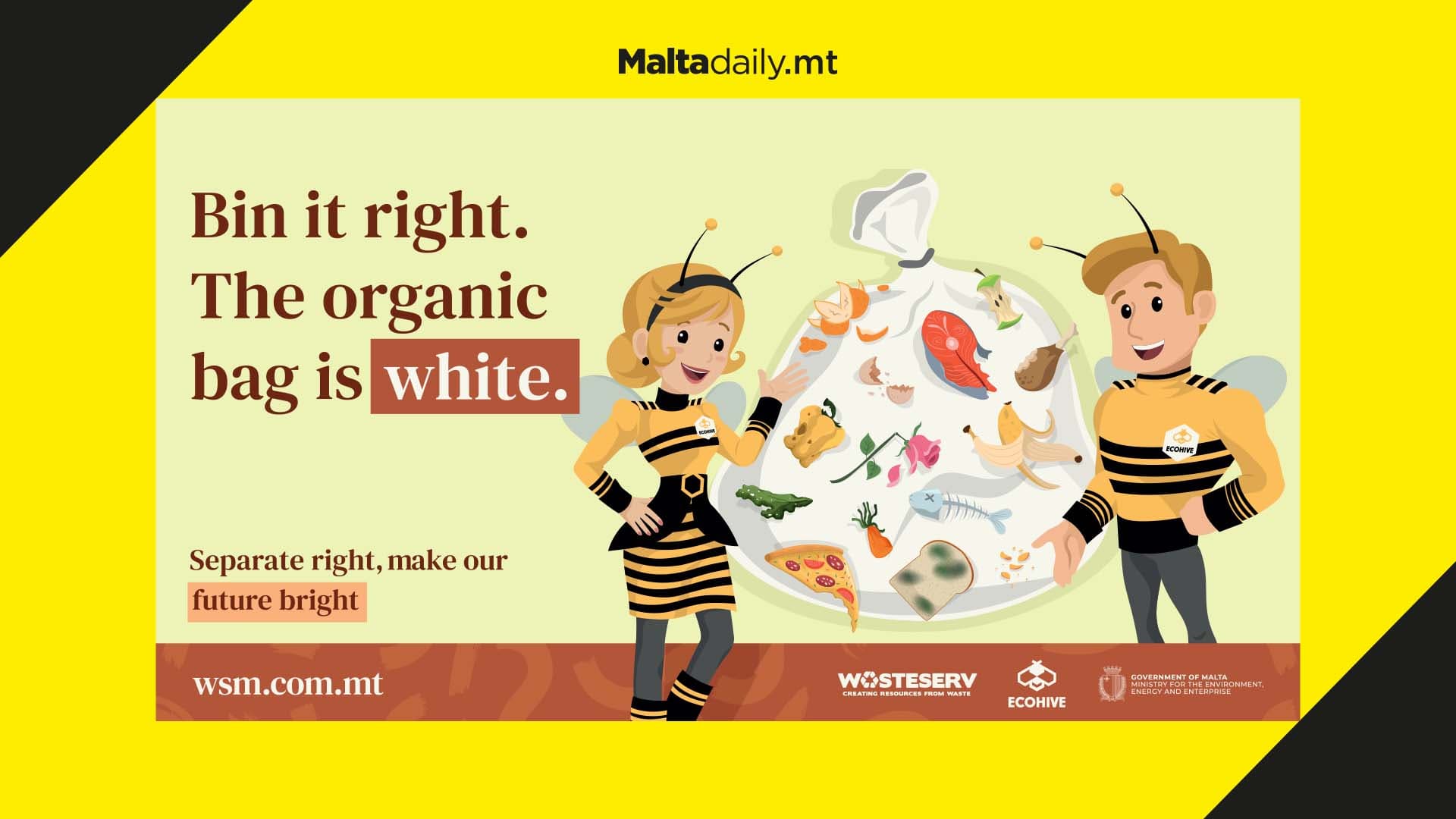Beat the Garbage Monster: here’s why you should be separating your waste

As the world continues to battle the ongoing climate crisis, waste separation has become more important than ever. Even in Malta, efforts have been made to adopt sustainable waste practices… but we could always do more.
Waste separation efforts have paid off over the past year, with the amount of non-recyclable waste in the recycling bag dropping from 25% to 20%, but we cannot stop here. That is why WasteServ has embarked on another informative campaign, this time focusing on organic waste.
As a matter of fact, WasteServ has noted that 40% of the contents of the country’s black trash bags are made up of organic waste. Naturally, this poses a number of problems.
When organic waste ends up in the wrong bag, we miss a chance to turn that waste into electricity. Last year alone, WasteServ generated enough electricity for 500 homes. Also, black bags end up in the landfill, and any organic waste left in these bags ends up rotting, and releasing methane, a greenhouse gas which has 25 times the warming power of carbon dioxide. Thus, we would be also contributing to climate change.
So, remember all fruit and vegetable peelings, any uneaten food and plate scrapings, bread and pastries, cooked meat including bones, fish, mouldy or expired food without its packaging, non-liquid dairy products, eggs and eggshells, rice, pasta, beans, tea bags and coffee grounds should all go in the white bags. Non-food items which can also be thrown in this bag include napkins soiled with food and very small garden waste like flowers and leaves but no twigs.
If you want to know more about this campaign, you can visit WasteServ’s website. You can also download WasteServ’s handy Waste Separation Guide containing information on what goes in each bag as well as information about all the waste disposal services offered. Just visit wsm.com.mt/guide
Do YOU separate your waste correctly?
#MaltaDaily #SeparateRight #MakeourFutureBright


